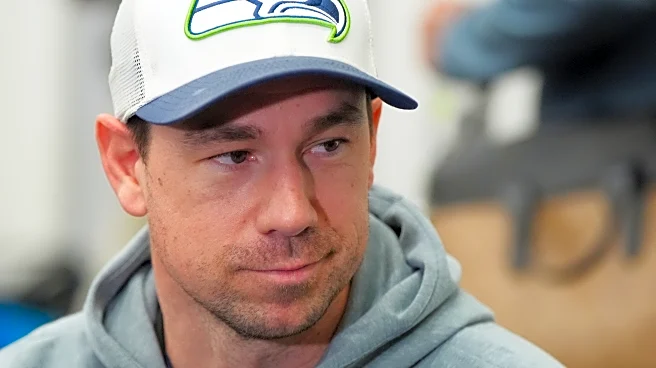What's Happening?
Ralph Lauren has significantly expanded its resale strategy, reportedly generating $500 million annually from vintage sales, which accounts for approximately 7% of its total revenue. The brand has been buying back its own archive pieces from online marketplaces, authenticating them, and reselling them at a premium. This approach is part of Ralph Lauren's broader 'Live On' sustainability platform, which includes rental, repair, and recycling initiatives. The resale items are branded as Ralph Lauren Vintage, positioned as collectible and heritage-rich pieces, and often sell out quickly due to their perceived scarcity.
Why It's Important?
Ralph Lauren's strategy highlights a shift in the fashion industry's approach to the resale market, transforming it from a secondary market into a primary growth lever. By controlling the narrative and the channel, Ralph Lauren can maintain pricing power and authenticity, turning nostalgia into a profitable asset. This approach not only boosts revenue but also aligns with sustainability goals, as it promotes circularity in fashion. Other brands may follow suit, recognizing the potential to monetize vintage and archive pieces while enhancing brand loyalty and consumer engagement.
What's Next?
Ralph Lauren is likely to continue refining its resale strategy, potentially expanding its offerings and exploring new partnerships to enhance its sustainability platform. The success of this approach may encourage other fashion brands to adopt similar strategies, leading to increased competition in the resale market. Additionally, Ralph Lauren's focus on controlling the narrative and experience may set a precedent for how brands engage with consumers in the resale economy.
Beyond the Headlines
The integration of resale into Ralph Lauren's business model reflects broader trends in consumer behavior, where authenticity and sustainability are increasingly valued. This shift may influence the fashion industry's approach to production and marketing, encouraging more brands to prioritize sustainable practices and storytelling. The success of Ralph Lauren's strategy could also impact the secondary market, as brands seek to reclaim control over their products and narratives.










